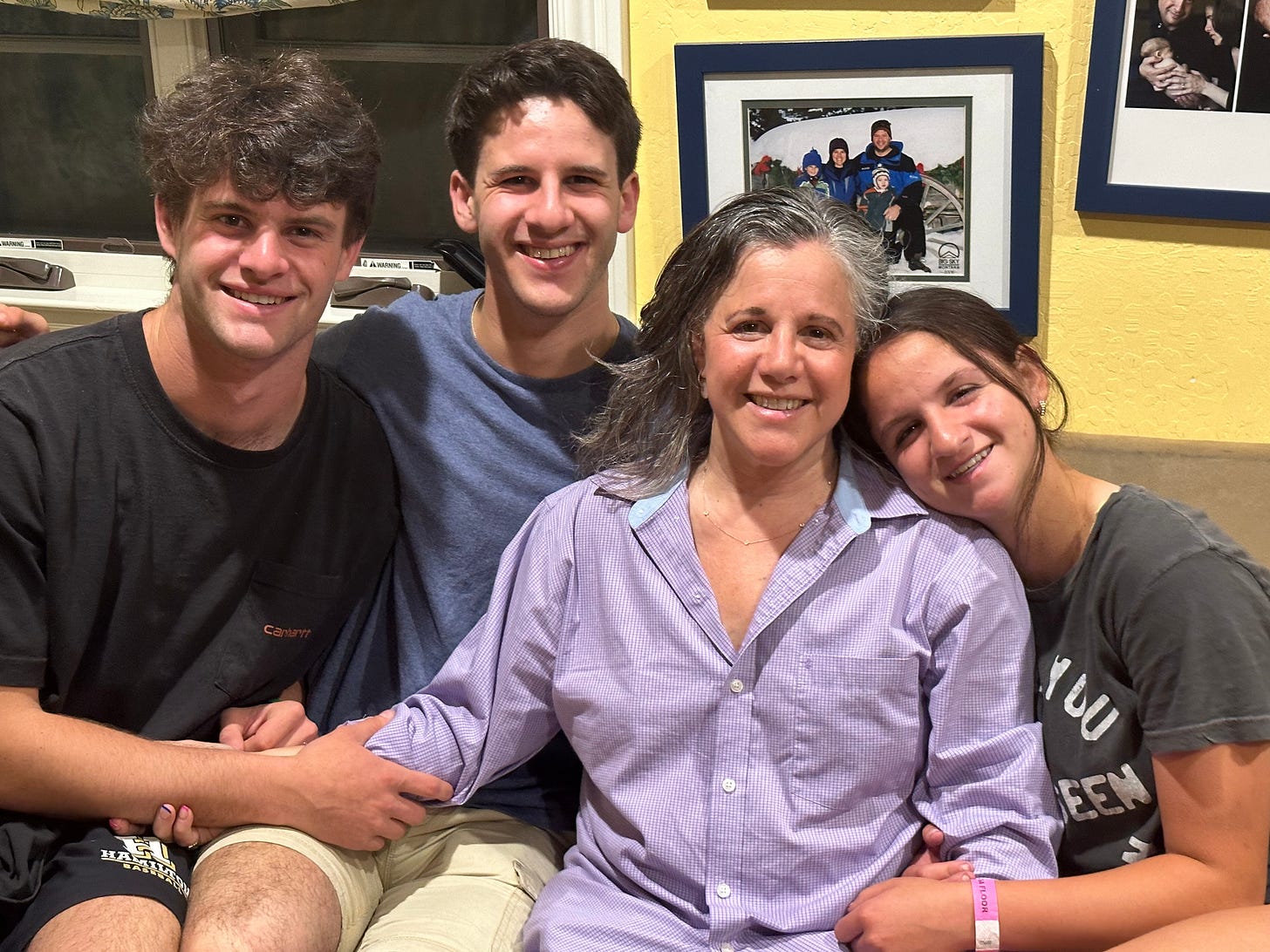The College Kid’s Dilemma: When Your Mom Has Cancer 3,000 Miles Away
Support from afar helps us both
Picture this: You’re a 21-year-old college junior sitting at your family dining table during winter break. Your mom walks in with a serious expression and says, “I’m not having my surgery tomorrow. The reason is I was just diagnosed with stage two breast cancer.”
That moment hangs in the air. You have a choice to make about how you’re going to handle the next few months from thousands of miles away.
My son Benjamin made a decision that night that would change both our lives. Not just during my treatment, but permanently.
“I started calling you every single day, and still to this day, what, almost three years later, I call you every single day,” Ben told me during our conversation. “I love talking to my mom. I know she’s always on my side, and I know it brightens her day as well as mine.”
Get the full episode - it will make you smile.
But here’s what made those calls different from the typical “How are you feeling?” check-ins that exhaust cancer patients: Ben understood intuitively that I didn’t need another caregiver. I needed my son to keep being my son.
His calls weren’t about cancer. They were about walking from guitar club to his dorm, about conversations with his rabbi, about the random stuff that happens during a college day. “Every day that had nothing to do with cancer, I didn’t even mention it. I didn’t even think about it because that’s not my life,” he explained.
The breakthrough insight that every family facing cancer needs to hear: You can help someone fight cancer by refusing to let cancer become the center of every interaction.
Ben established what he calls “cancer days”—Wednesdays were for “How are you, Mom?” But every other day was for living. “For me personally, I didn’t want to focus on it. This was somewhere I felt so powerless. I really wanted to focus on aspects of life where I had control.”
Two immediately actionable strategies from Ben’s approach:
Build happiness tripwires: Use technology for good. Those daily calls became what I call “happiness tripwires”, brief moments of connection that trap joy throughout the day.
Live your life loudly: The best thing you can do for someone fighting cancer is to show them that life continues, and that there’s still beauty, excitement, and normalcy worth fighting for.
Want to know how Ben handled his siblings’ different reactions, why transparency became their family’s superpower, and the surprising role his faith played in staying centered?
The complete conversation reveals why sometimes the most important thing you can do is show up even when you don’t know what to do or say.


